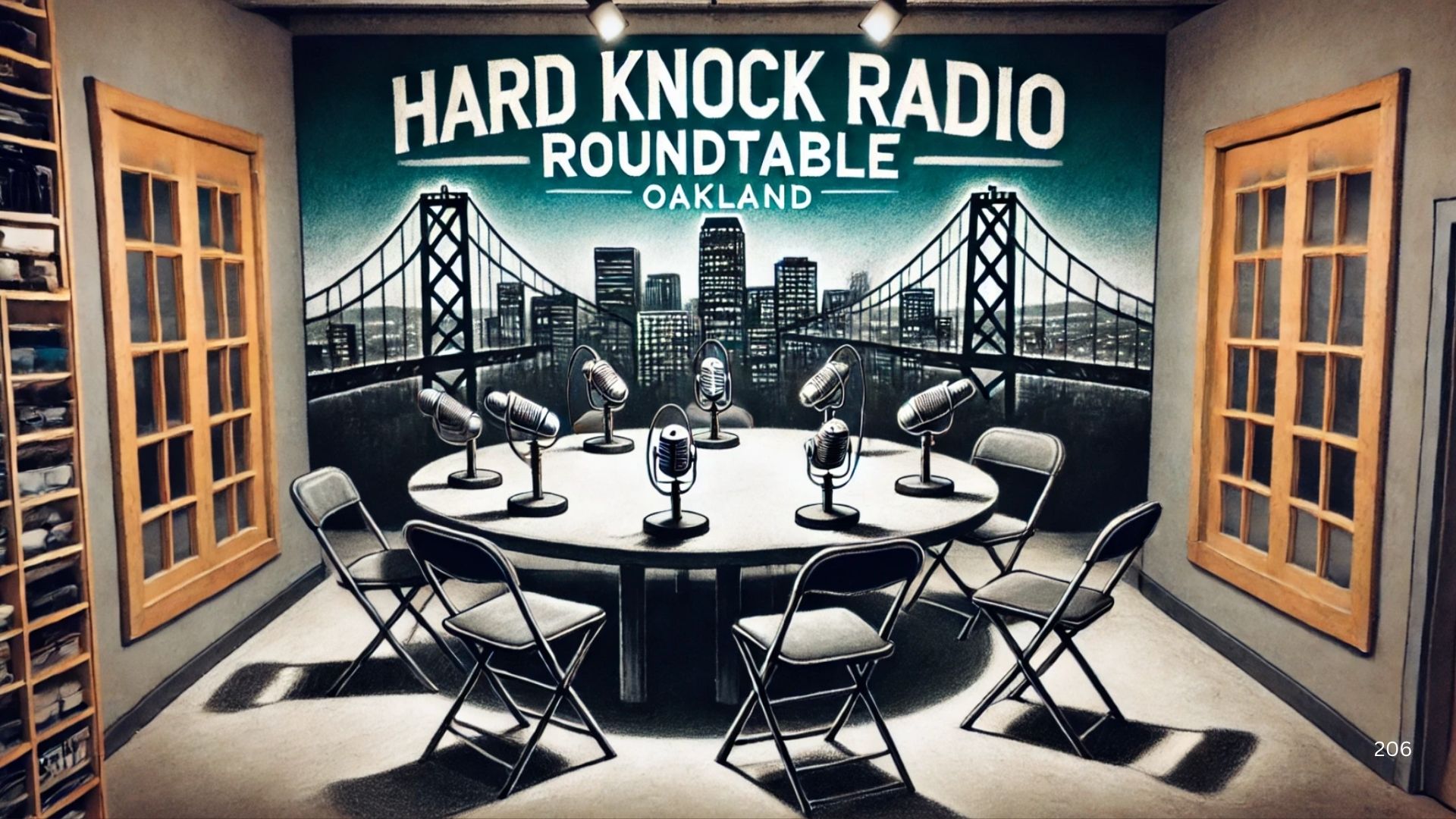(HKR-11-06-24) In a recent episode of Hard Knock Radio, host Davey D discussed the 2024 election results with three guests. Pecolia Manigo from Oakland Rising Action, political analyst Dr. James Taylor, and vice presidential candidate Melina Abdullah shared their insights. The conversation explored the complex narratives shaping voter behavior, key local races, and ongoing challenges around race and economic disparity.
The Local Landscape: A Mixed Bag of Outcomes
Pecolia Manigo discussed the divided voter sentiments in California, where a campaign blamed criminal justice reforms for economic challenges. “A significant campaign has blamed criminal justice reform for the state of our economy,” she said. She emphasized that this narrative had resonated with many voters. Manigo also highlighted the importance of carefully implementing propositions like Proposition 36 to prevent harm to those needing support.
As local election results began to come in, Manigo reported that early numbers showed significant challenges for progressive candidates. “Both recalls seem to be on the path toward needing a longer verified count,” she stated, reflecting on how the narratives around crime influenced local elections and community sentiment.
A Vice Presidential Perspective: Wins and Losses
Melina Abdullah, who recently completed her campaign alongside Cornell West, provided a broader perspective on the election outcomes. She celebrated key victories, including the unseating of controversial Los Angeles council member Kevin de Leon and the passage of a crucial housing measure. However, she lamented the loss of District Attorney George Gascon, a pivotal figure in criminal justice reform, stating, “Unfortunately, the fear mongering won, and Da Gascon was unseated.” Abdullah’s remarks underscored the pervasive influence of racial dynamics in the election, asserting, “The vast majority of white people are deeply racist. More than 80% of white men voted for Donald Trump.”
Abdullah also emphasized the importance of grassroots organizing and the necessity for movement-based electoral strategies, stating, “Electoral politics have to be an extension of movement. It has to be grounded in what people actually want.”
The Political Analysis: Examining Voter Behavior
Dr. James Taylor provided a political analysis of the election, reflecting on the implications for marginalized communities and the persistence of white supremacy. He pointed out that the election results revealed a disturbing trend, suggesting that “things were set back for decades.” Taylor’s observations about the voting behavior of white women were particularly striking. “The Jedi mind trick is white women think and vote race first, but they do gender in between voting,” he explained, noting that this pattern has persisted across elections.
As the conversation turned to strategies for mobilization, Taylor urged listeners to focus on upcoming midterms and the importance of building coalitions. He acknowledged the challenges faced by progressive candidates but emphasized the necessity of resilience in the fight for social justice.
Conclusion: A Call for Effective Organizing
The Hard Knock Radio discussion encapsulated a critical moment in political discourse, highlighting the multifaceted nature of voter sentiment and the impact of local elections on broader social issues. The guests emphasized the urgent need for effective organizing, community engagement, and a clear understanding of voters’ economic concerns. As Pecolia Manigo aptly noted, “People power has to be creative, innovative, and go beyond where our ancestors went to assert power on a day-to-day basis.”
The conversation serves as a reminder that the path forward requires not only analyzing election outcomes but also harnessing the power of grassroots movements to challenge prevailing narratives and effect meaningful change.


Leave a Reply